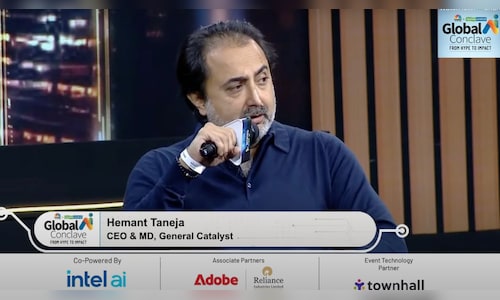
Speaking at the CNBC-TV18 & Moneycontrol Global AI Conclave 2024, Taneja shared his vision of how AI will redefine industries, create opportunities, and demand new skills from the workforce.
In the Short Term: A New Breed of Engineers
If you’re graduating as a coder today, Taneja has some advice: get ready to level up. “There’s a shortage of engineers who really understand how to build with AI,” he said. The next wave of tech innovators—what he calls “10x AI engineers”—will need to think differently from traditional software developers. The tools are new, and the potential to build groundbreaking products is massive.
In the Medium Term: Empathy Meets Efficiency
While AI can handle productivity, Taneja believes there’s one thing it can’t replace—human connection. This is where new job opportunities will emerge.
“We’ll see jobs evolve in industries like healthcare and education,” he explained. “We need more doctors, nurses, and teachers. We also need caregivers for the elderly and mental health professionals. These roles require empathy and human interaction, which AI can’t replicate.”
As technology fills in for repetitive tasks, human jobs will pivot to areas where emotional intelligence matters most.
In the Long Term: Uncharted Territory
So, what happens 25 years from now? Taneja admits nobody can predict exactly where we’ll land. “There’s a transformational workforce shift happening,” he said. “But beyond that, it’s up to human ingenuity to take us places machines might not be able to go.”
Rethinking Education and Policy
Taneja also flagged a looming challenge: how do nations prepare their people for this seismic shift? He noted that middle-class jobs built on offshoring labor are at risk. To adapt, he says governments and educational institutions must focus on upskilling workers and making them technologically advanced.
“It’s not just about surviving change,” Taneja added. “It’s about finding cheaper, better ways to do things. Compute costs are dropping to nearly zero, which means access to technology is more democratized than ever.”
What This Means for the Workforce
For Taneja, AI isn’t about job losses—it’s about reimagining work itself. Yes, it’s scary to think about jobs disappearing, but he believes the future also holds exciting opportunities for those willing to learn and adapt.
“Jobs aren’t vanishing—they’re evolving,” he said. “The future belongs to roles that blend technology with humanity. It’s up to us to embrace that shift.”
Also Read: Global AI Conclave: Rajeev Chandrasekhar flags regulatory void in monetising publicly scraped data



